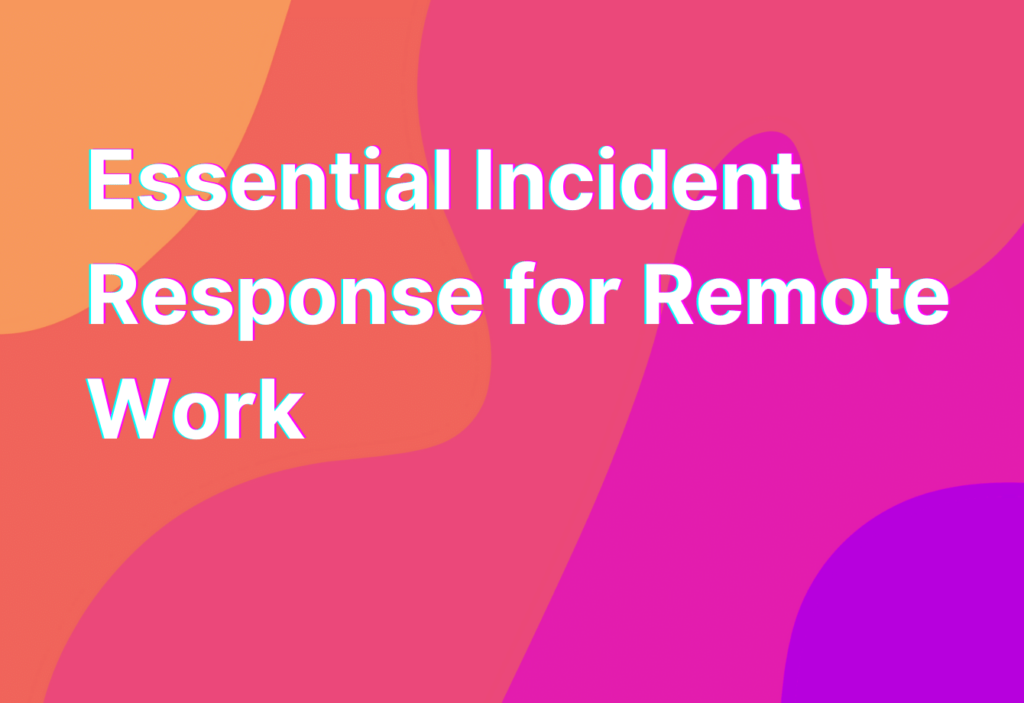Essential Incident Response for Remote Work
Hey there, remote workers! It’s Ashley here, your friendly remote work advocate with 10 years of experience in the tech industry. Today, I want to talk to you about something that’s crucial for all remote workers: incident response. Now, I know what you’re thinking – “Ashley, what on earth is incident response?” Well, my friends, let me break it down for you.
What is Incident Response?
Incident response is the process of handling and managing any unexpected events or incidents that may occur while working remotely. These incidents can range from a minor technical glitch to a major security breach. Having a solid incident response plan in place is essential to ensure that you can quickly and effectively address any issues that arise.
Now, you might be wondering why incident response is so important for remote workers. After all, when you’re working from the comfort of your own home, what could possibly go wrong? Well, my friends, let me tell you – a lot can go wrong. From cyber attacks to power outages, remote workers are not immune to the same risks that traditional office workers face.
The Importance of Incident Response for Remote Work
So, why is incident response so important for remote work? Let me give you a few reasons:
- Security: Remote workers often handle sensitive data and information. Having a solid incident response plan in place can help protect this data and minimize the impact of any security breaches.
- Productivity: When an incident occurs, it can disrupt your workflow and productivity. By having a plan in place, you can quickly address the issue and get back to work.
- Reputation: Incidents can damage your reputation as a remote worker or as a company. By responding quickly and effectively, you can minimize the damage and maintain a positive image.
- Compliance: Depending on your industry, you may have legal or regulatory requirements that you need to meet. Having an incident response plan can help ensure that you stay in compliance with these requirements.
- Peace of mind: Knowing that you have a plan in place can give you peace of mind and help you feel more confident in your remote work setup.
Now that we’ve established why incident response is so important, let’s dive into some essential steps you can take to create an effective incident response plan for remote work.
Creating an Effective Incident Response Plan
1. Identify potential incidents: Start by identifying the types of incidents that could occur while working remotely. This could include things like cyber attacks, power outages, or even physical damage to your equipment.
2. Assess the impact: Once you’ve identified potential incidents, assess the potential impact of each one. This will help you prioritize your response efforts and allocate resources accordingly.
3. Develop a response strategy: Next, develop a strategy for responding to each type of incident. This should include clear steps and procedures that need to be followed in the event of an incident.
4. Communicate and educate: It’s important to communicate your incident response plan to all remote workers and ensure that they understand their roles and responsibilities. Regular training and education can help ensure that everyone is prepared to respond effectively.
5. Test and refine: Finally, regularly test your incident response plan and make any necessary refinements. This will help ensure that your plan is up-to-date and effective.
And there you have it – the essential steps for creating an incident response plan for remote work. Remember, incidents can happen to anyone, so it’s important to be prepared. By following these steps, you can ensure that you’re ready to handle any unexpected events that come your way.
Wrapping Up
Well, my fellow remote workers, we’ve reached the end of our journey through incident response for remote work. I hope you found this information helpful and that you’re feeling more prepared to handle any incidents that may come your way. Remember, incident response is all about being proactive and having a plan in place. So, take the time to create your own incident response plan and give yourself some peace of mind.
And hey, if you want to dive deeper into the world of cybersecurity and remote work, be sure to check out this JavaScript Cybersecurity for Remote Work article on our website. It’s a great resource for anyone looking to level up their remote work security game.
Until next time, stay safe and happy remote working!


